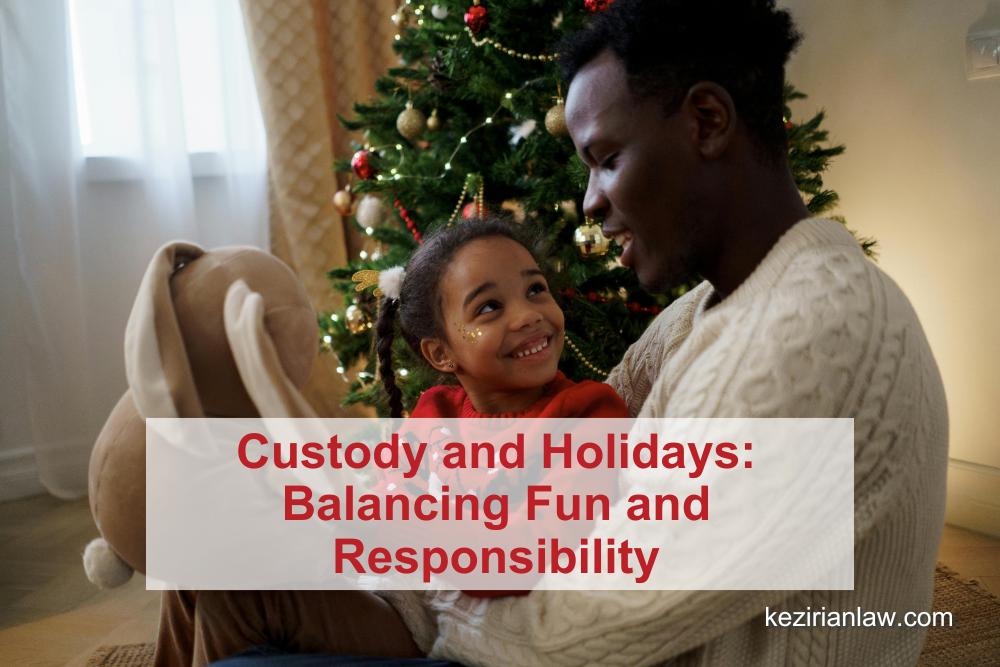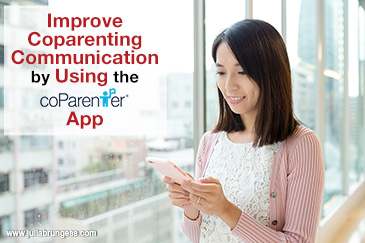Custody and Holidays: Balancing Fun and Responsibility
The holiday season, a time filled with joy and celebration, can bring unique challenges for divorced families navigating child custody arrangements. Striking a balance between ensuring children’s happiness and fulfilling responsibilities can be complex, but with careful planning and open communication, divorced parents can create a festive and harmonious experience for their children. Here’s how to manage holiday custody arrangements effectively, with a focus on beneficial outcomes for all involved. Understanding Holiday Custody Arrangements Child custody around the holidays may involve a different approach than during the rest of the year. In Fresno, family law highlights the importance of structured custody schedules, providing a clear framework for both parents. However, flexibility is often key during special occasions to accommodate celebrations and traditions that are meaningful to both parents and children. Prioritizing Children’s Welfare When it comes to custody and holidays, children’s welfare should always be the primary focus. Ensuring that children feel loved and protected, even in new family dynamics, is crucial. Parents should aim to reduce stress and confusion by explaining any changes in the schedule well in advance, allowing children to adapt to and anticipate the holiday plans. Planning Ahead Effective holiday coordination begins with early planning. Parents can sit down together months before the holiday season kicks in to discuss and agree on where the children will spend each holiday. Having a detailed schedule not only helps prevent misunderstandings but also provides stability for the children. Open Communication Communication is central to navigating custody and holiday challenges. Both parents should work on maintaining open lines of communication, focusing on what is best for their children. Using a positive and cooperative tone helps mitigate potential conflicts and ensures that both parties are heard and understood. Flexibility and Fairness While sticking to a pre-established custody schedule is important, some flexibility around the holidays can lead to a more joyful experience for the children. Parents can consider alternating holidays annually or splitting time during the holiday break, ensuring that both have quality time with their children. For instance, if one parent has the children on Christmas Day one year, the other parent might have them for New Year’s that same year and Christmas the following year. This kind of arrangement promotes fairness and inclusiveness, allowing children to engage in traditions from both sides of the family. Creative Solutions Parents can also explore creative solutions to holiday custody. For example, if traveling long distances is involved, consider having a virtual holiday dinner together using video calls. This can help maintain traditions and keep family bonds strong despite physical distances. Additionally, families can celebrate holidays like Easter or Thanksgiving on alternative weekends, thereby ensuring celebrations are still enjoyed without compromising the original custody schedule. Celebrating Together In some cases, divorced parents find it beneficial for children to see them come together during certain holiday events. If interactions remain civil and the situation is comfortable for all parties, jointly celebrating a portion of the holidays can be a meaningful gift to the children. This scenario, of course, requires mutual understanding and respect. Legal Considerations When making custody arrangements, keep in mind any legal restrictions or requirements that may apply. It’s essential to have all agreements documented and, if necessary, approved by a court to ensure compliance and prevent future disputes. Legal professionals, such as those at Kezirian Law can provide guidance and support for parents navigating these processes. Personalized Support from Kezirian Law Balancing the joys of the holidays with the responsibilities of shared custody doesn’t have to be daunting. With proactive planning, open dialogue, and a focus on children’s happiness, divorced parents can manage holiday arrangements that are fair, fun, and fulfilling. Kezirian Law specializes in providing our clients with thoughtful and personalized representation through emotionally difficult proceedings. Consulting with legal experts can offer valuable insights and assistance in crafting arrangements that suit your unique family dynamics. By keeping the spotlight on children’s welfare and ensuring equal participation in holiday celebrations, parents can create lasting and cherished memories for their children, helping them experience the true spirit of the holidays.
Custody and Holidays: Balancing Fun and Responsibility Read More »










